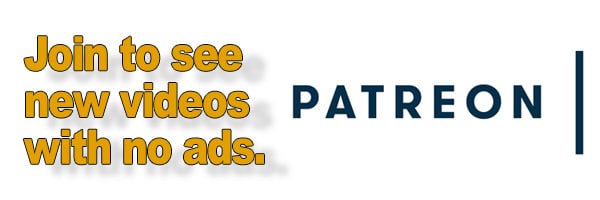As an Amazon Associate DcSoundOp earns from qualifying purchases.
In this video we’re getting into the new PreSonus ioStation 24c DAW controller and interface that was announced this past January at winter NAMM. I’ve had the 24c on my desk for the past couple of months through a few big editing projects and it turned out to be more useful than I originally expected. If you’ve never had a real interest in DAW controllers, this is still worth a look if you’re in the market for a two channel interface for the desktop. The layout if unique and the DAW controls are a value added even if only used on occasion.
PreSonus also launched Studio One 5 this week to much interest from the growing Studio One 4 user base. Studio One 5 is an exciting update to their DAW with some really interesting features we’ll be looking at on the channel as soon as I’ve had the chance use them more myself. Be sure to check out Joe Gilder’s YouTube channel for tons of great content where he covers Studio One along with a wide array of PreSonus hardware.

iOStation 24c Pricing & Availability
Going SaaS
Perhaps more interesting though is their new Sphere subscription service, giving you access to the new Studio One 5 DAW, their Notion notation and scoring software, as well as additional sample, effects and loops libraries. There are collaborative cloud based tools and storage also, specifically aimed to facilitate working remotely with your team or other members of the Sphere service.
I’ve watched in recent weeks as the comments pop-up from folks who seem to be waiting just to decry subscription services at any moment. They bravely inform the public of the injustices they’ve been dealt, always poised to spend lavishly it seems, if only the software developers hadn’t turned their back on them. No matter if it is Adobe in the cross hairs annually, Autodesk who went subscription back in 2015 (or earlier?) with CAD or smaller companies like PreSonus who choose to go subscription in 2020, the comments never seem to change.
As someone who has paid around fifty dollars a month for the past 5 years or so for an Adobe subscription alone, I honestly have no idea what they are on about. The ability to pay as I go for access to software & tools I would never be able to afford otherwise is incredible. I think it is absolutely insane that I can pay a flat fee each month and have access to every piece of software Adobe makes, when Photoshop alone used to cost a couple of grand. I have no idea what they used to charge for Audition (their audio editing software) but I know it would have been a huge expense to pay for outright on the occasions it has come up as being needed on a project. Same goes for Illustrator, Lightroom, InDesign, and a few others I’ve hastily downloaded to solve a given problem.
The continuity between apps in their Eco-system and the ability to exchange files seamlessly while working collaboratively is light years beyond what we had before. The reality is that professionals are running short on time to deal with issues brought on when sharing files. Free software & accessible alternatives have their place, but in the real world of fast paced revisions being worked on by multiple remote users, anything you can do to make that process less painful is worth looking at.
Anecdotally, I remember when most pro software ran $1,000 or more per version and it’s no mystery why so many people I knew back then had at least some experience with pirated or cracked software. Bringing the cost of access down through subscriptions provides not only an easy point of entry for new customers, but a reliable source of revenue for the developers to provide updates and support consistently. This has all worked out pretty well in my experience, and over the years takes the pressure off of the end user to worry so much about versioning and compatibility.
No matter our feelings though, subscriptions are here to stay for the foreseeable future & I’m excited to see how the Sphere service continues to grow and take on a life of its own as users make it part of their everyday workflow. In the handful of years since Adobe went subscription, I’ve gone from using none of their cloud sync tools to relying on them heavily when working on every project I do. I think the same could happen here for music producers and musicians alike & it is really exciting to have a responsive small company like PreSonus pushing the envelope for the home studio owner.
Amazon and the Amazon logo are trademarks of Amazon.com, Inc, or its affiliates.
